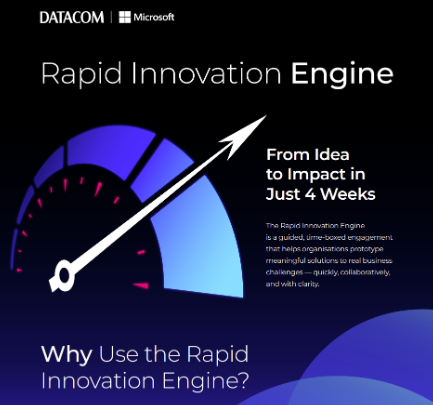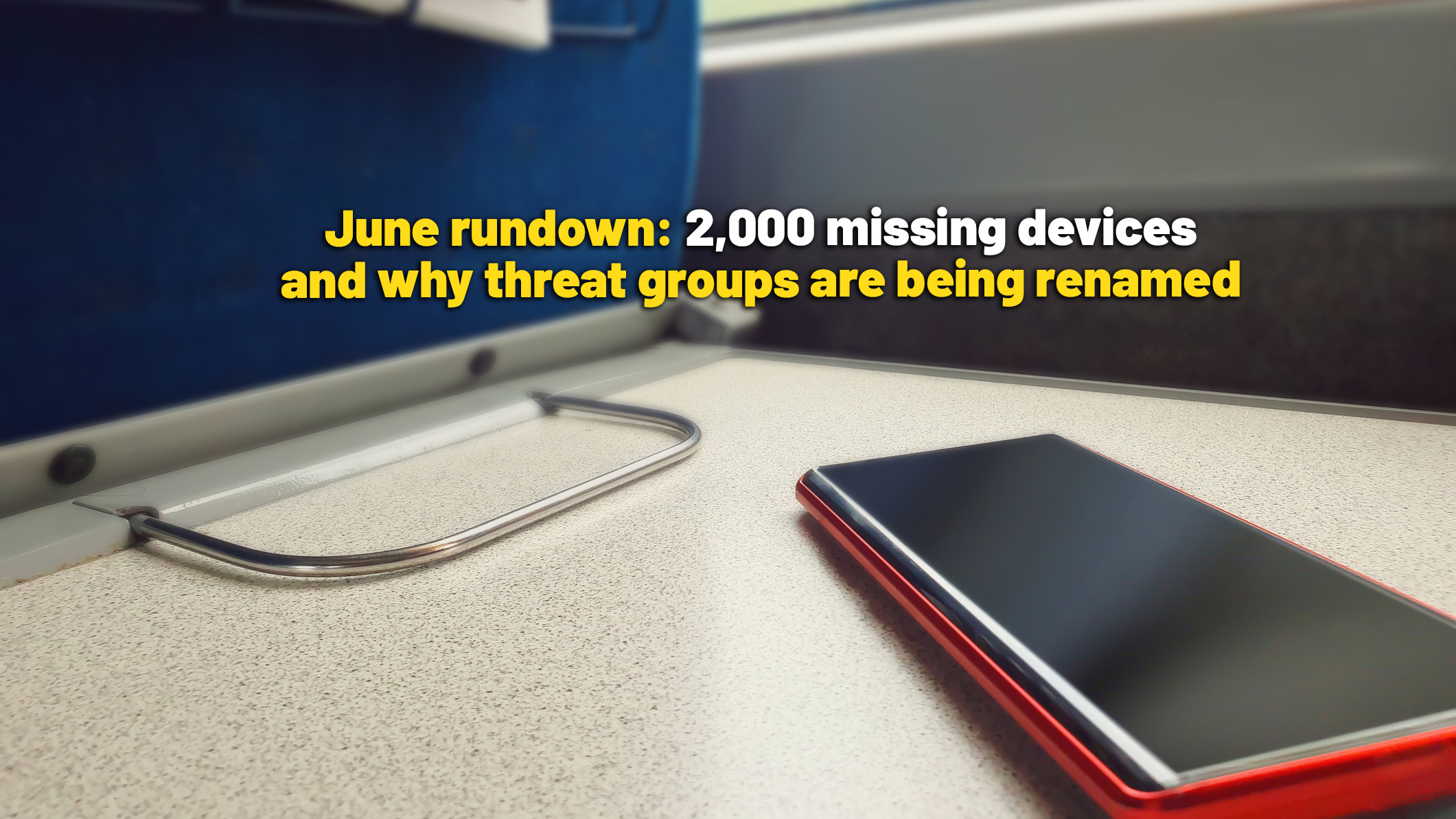Podcast transcript: Accelerating digital transformation
Read the full transcript for this episode of the IT Pro Podcast
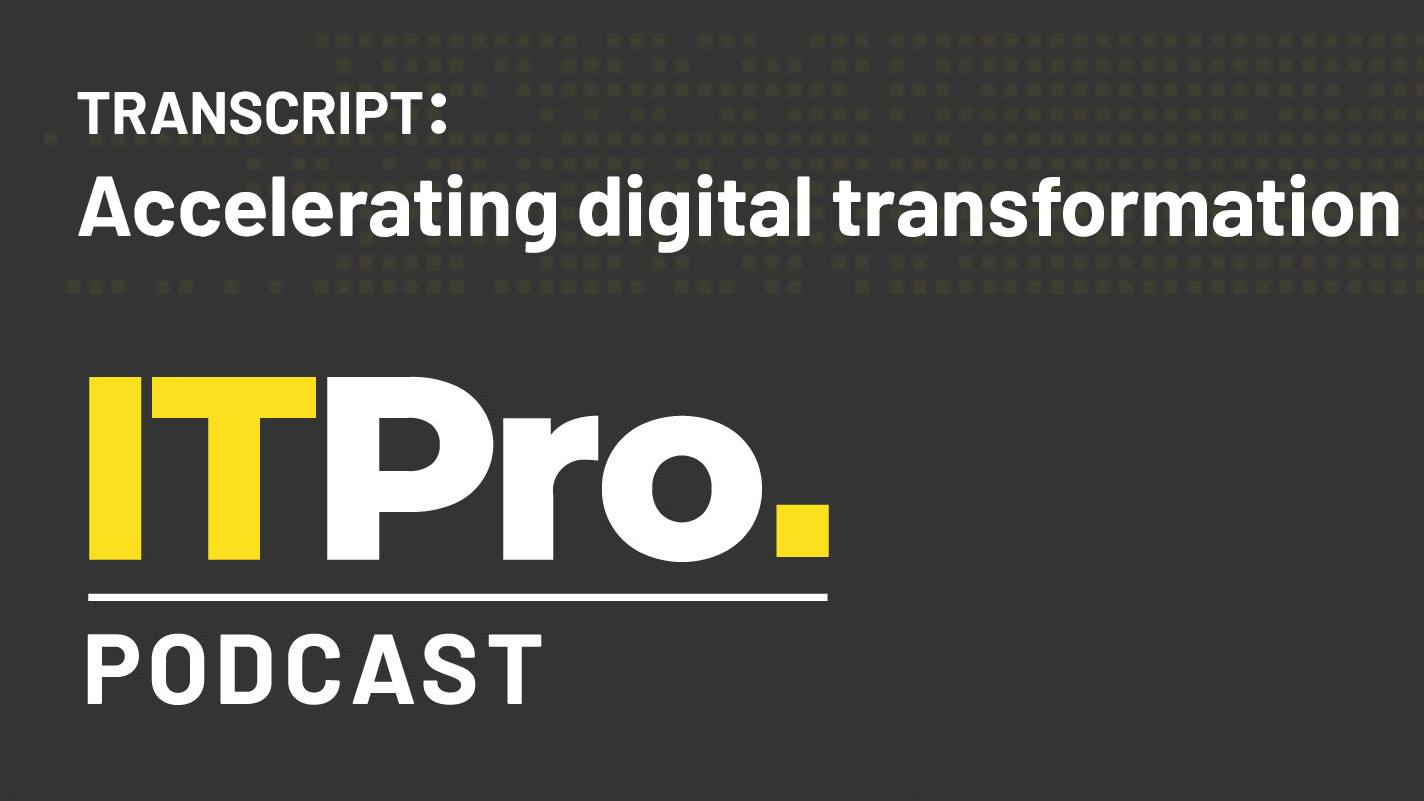
This automatically-generated transcript is taken from the IT Pro Podcast episode ‘Accelerating digital transformation'. To listen to the full episode, click here. We apologise for any errors.
Rory Bathgate
Hello, I’m Rory Bathgate
And you’re listening to the IT Pro Podcast. This week, we're settling a digital dispute, and who better to go to than the ombudsman?
Spurred on by the pandemic, digital transformation has become a core business aim for many companies both in and out of the tech sector.
There's a lot on offer through the process, but it also comes with its own set of questions - on-premises Vs off-premises, the degree to which automation should be used and which enterprise solution (if any) is best for you.
Joining the show this week to discuss digital transformation efforts, streamlining financial data flows and increasing visibility on metrics, is Nicola Wadham, Chief Information Officer at the Financial Ombudsman Service.
Nicola, it’s a pleasure to have you on the show.
Sign up today and you will receive a free copy of our Future Focus 2025 report - the leading guidance on AI, cybersecurity and other IT challenges as per 700+ senior executives
Nicola Wadham
Rory, it's absolutely great to be here. And I'm delighted to be able to share a little bit about what we're doing at the at the service with you.
Rory
Thanks so much for coming on. So I guess just straight off the bat, there's a lot going on right now, economically. But also, as I mentioned a bit in the intro, digital transformation is a real core focus for a lot of businesses. Do you think that right now it's a real priority for businesses?
Nicola
I think so very much, and it certainly comes through in all my conversations with our sister organisations, they're on a similar journey. I wondered if it is a little bit of a moment, just to explain a little bit about the Ombudsman Service. Not a lot of people may have come across us. So what does the Financial Ombudsman Service do? We've been set up under parliament decree since 2001, so we're 21 years old this year. Our service is free for consumers, and every year we have around about a million people that come to us with questions. And from these contacts, we have around about, roughly, up to 200,000 complaints that we manage in a year. So we look at those complaints, and we investigate and resolve those. So, if a financial business and a customer can't work out their complaint together, they come to us, and we will give an unbiased and fair answer about what has happened. And we have the power to put things right. We are committed also to sharing our insight and experience to encourage fairness, and confidence in the financial services. So that's our remit, and that's what we're tasked to do. I think it's also worth mentioning a little bit before we start on, on what we've been doing and the digital journey. A little bit about the business model, if I can say that I will use the word 'business'. We are a service that — you fall over yourself a bit by saying service. Sometimes people think we're financial services. No, we're really a complaints management organisation. And that fact that we are a service, and not a commercial business, does sit at the core of our design, thinking and obligations. We are here for all customers and our customers are the complainants and of course businesses. This means, of course, we have to be accessible and responsive, we have to have channels for all people to be able to come to us. And of course, we're holding data that is sensitive and secure, we have to hold that data securely, as do all organisations, but we must also use that information in a compliant manner. And use it for insights and analysis in a compliant manner. And indeed, we hold all our data under a public task consent model, which allows us to do some aggregation and an inference of patterns and so on with the data we hold. And we have a lot of data.
Rory
Sounds like it!
Nicola
We have masses. Really, I heard from Microsoft that we had one of the largest SharePoint repositories in Europe —
Rory
Oh wow.
Nicola
Which I probed a number of times, we have a lot of documents. I think the other characteristic is that we have many consumers that come to us and over the course of our existence in our current form. We've helped nearly 5 million customers. Those people will come to us once on the journey. Hopefully people don't have bad experiences with financial businesses, but it tends not to be a repeat business. So a person will come with us on a journey once to get their solution resolved. So it's a lot of individual people going on the journey. We're also demand led, so we don't know when the next thing will emerge in the market that needs solutions. So we have to be very responsive. And that, again, this is a key point in our design and thinking for the digital journey is, how do you suddenly scale up? And answer questions fairly, when the expertise of the investigators is key, and it's a skilled job to do. And, of course, we're not a commercial organisation, so we're funded from the regulated financial businesses. And there's also a case fee levy, so we have a twin funding source. And that, of course, means we must spend our money wisely. And one of the things here is, of course, we're very transparent, we have to be very clear about what we spend and how we spend it. So we're not, we're not a vast organisation. UK-based obviously, and I have around about, just under 200, folk in the technology department. So you know, a great small team, but those are the constraints that we've been on the journey with. So that's just a little bit of background, because I know, when people talk about technology, it's always the context in which you're deploying is, that is the difference between just a piece of technology that you can put in, and a piece of technology that you can put in and use, and really exploit. And it's that final mile, I mean, which I want to draw out and talk about that final mile of, yeah, I've put some technology in, and it's really singing. You know, the implementation is one thing, but the actual value, and the transformative change of that technology is a whole other road, and the two are equally important. So we have this very basic process on one hand, we take queries, some are not for us, so there's a meet and greet and triage moments —
Rory
An audition
Nicola
— so no we don't handle water complaints. Yes, you can come to us, your financial complaint we can manage, then we take the details and turn that into a case. Then we categorise it so that we can send it to the right person to look at. And then we assemble all the information about the case so that we can weigh up the pros and cons. And then we do an assessment. And then we form a conclusion, and we communicate that. Very straightforward I think, as a business process. If you you started back in the paper days, which I think the Ombudsman Service was not not such a very long time ago, their case files, and they went on a journey to digitise that, very much following the paper flow. But of course, now we have the opportunity to, to to work differently, and layer and add value out of the whole process. So that's the sort of journey we want. So what have we done? First of all, we've got our casework on a Microsoft Dynamics platform. So that's up in the cloud, and the associated documents storage also up there in the cloud. So that's lovely. And the information is secure in there, and flows through. And we have, we don't have a digital portal right now as we have phone channels and mail and fax. But we're able to just advertise that too widely.
Rory
And that's one of your targets, isn't that actually, the digital portal?
Nicola
Absolutely! So the digital portal is going to make a big difference. Not only is it something that clearly in the modern age one wants to offer consumers, that can access that channel easily, that opportunity to work out of core business hours, bring their issues in to us so that they can raise that complaint and indeed, self serve, you know, what's happening? How's it going on? Can I share information? And indeed for our businesses, so that they can see how they're doing if the bigger businesses who have more than one case with us at a time see how they're going. Are they, are we waiting on any documents for them, and it's safe way to send that information to us. Obviously, we're never going to turn off the phones, all the other channels we'll keep all channels open, but the portal will certainly sit there at the front end. And of course, that allows us to get that earlier insight in terms of demand. We can see automatically who's calling other trends coming out? Are we getting more of one type of case coming through, it's like an early warning system, it allows us to think a little bit more about the way we've disposed our caseworkers in the business side, so we're getting a little bit more of this type of case, we need to increase the team over here that's dealing with that, so that we can can deliver our opinions in a very timely fashion. But that whole layer of then, it's not just a channel for consumers, it's the channel for consumers, and then the use of all the data. And then the use of that data, not just as a report backward-looking, but almost real-time, hey, we're getting we're getting more car insurance complaints, we need to increase that team. So that you've got that real time, sort of ability to flex the organisation.
Rory
And would that be something that you're looking to move into maybe even into models as well? I mean, I'm going to ask a bit about automation and AI, a bit later. But that kind of forward thinking approach, when you can draw out that data of, let's say, for example, you used car insurance. Oh, there's there's a big influx. And then, do think that the digital portal would help you maybe anticipate, and be able to ramp up scale in areas that you anticipate you'll see influxes in, in the future?
Nicola
So I think that's a very interesting question. Thanks, Rory. We will get early warning of changes in patterns of complaints. And that helps us early say, reach out to the businesses and say, we are seeing this do you want to have a little look at your complaints process? You know, and sometimes, it could be that they have an issue with their complaints process that more things are falling through the through the net, because obviously, financial businesses like to have a robust complaints process that the ideal is that no one would ever need to want to come to the Ombudsman Service . Our success is our extinction. But the predicting demand, that's a slightly different function, we we spend time with the industry talking about trends we can anticipate, that there may be more issues in the macro economic climate and so on, based on past patterns. So sometimes, of course, there's an event. If a bank had a cyber event, a couple of years ago, that caused some detriment, and we had a little spike of cases related to that. And that's not something that you can well, you could predict a cyber events going to happen somewhere some time, but that's slightly different to estimating trends. And it's not, it's not a bad thing, because obviously FinTech I mean, that's another whole thing, you know, the banks are, and financial institutions are, absolutely innovating, using new technologies. And, if they didn't innovate, we wouldn't have new products. And so inherently, there's going to be some products that might have a slight issue if it's sold in a particular way. And so that early understanding where they might want to tweak a product or advice or the way they're selling, is very important. So that core piece around engagement, prevention collectively with the industry is very, very core. And that's based on on on our information and insight. So it's that layer at the front end, early warning, as well as the channel, it's not just the channel, it's all that rich stuff around it. And yes, absolutely, coming onto intelligent automation. We're partnered with Baringa, to install some machine learning that can do automatic case categorisation that drives that more accurate understanding of the case earlier. And indeed, the business that's related to, to get that that higher than than a human can do, and manage that whole process. It just takes some friction out, and of course, provides that more accurate information again earlier in the process.
Rory
So that's sort of a back office processing step, and then when it's passed on for flagging, or for individual review, that's then being passed on to a human employee?
Nicola
Absolutely, and human in the loop on everything we do, we absolutely keep humans on the assessment and the judgement, there will not be, we will not be automating the decision. We will be facilitating the flow of the assembly, of the data, we will be facilitating information. And we will be supporting those ways and automating administrative tasks, but we will not be replacing the judgement elements. Although, of course, it's very helpful for us to understand the judgments because then again, you can spot any inconsistencies and support the quality agenda so that we have a quality outcome for each for each and every case. So that whole piece is landing in the very near future. So you have that lovely end-to-end flow. And then if you couple that with our back office system organisation that we've done, it's been live for just now a year, we put in Workday for our finance, HR and payroll solution. And replacing a very worthy, but multiple set of applications that I'm very glad to see the back of. So we've now got all of our back office systems in one place, the ability then to understand in great detail our casework shape and cohort and the various skills and so on. With the demand, you're getting to that vision that I have, that literally you can, you can spin up your teams for the day, almost very closely aligned to the demand you're getting in, and that efficiency so that you don't accidentally land a motor insurance claim on the pension person's desk. And you can cross train, and support so that you're driving that workforce planning into a whole different level of of understanding, prediction and, and flexibility. And that's with we're going to be working on with the Workday skills cloud, and populating that with information, objective information about case workers, because obviously, we know what they can do. And we need to be able to support people on training journeys and so on. But that ability to take that demand early site, and translate it into the best configuration of the routing and casework, I really think it's going to produce a lot of improvements. Yeah.
Rory
So this combined solution, are you seeing an improvement in observability across your service, by combining what was a number of disparate solutions into one through Workday?
Nicola
On our digital journey, we're literally putting in these components of Workday, is in our case work system, is in the intelligent automation pieces, is going in this month, the digital portal this month, and built over the next six months in a pilot iteration. So that end-to-end joining up, we will have that. But each of the pieces that we're putting in will incrementally take us there. And I think that's really that we've got several layers of that digitisation, we've got the the technology implementation being safe and secure and sensible. So the workday implementation was really quite exemplary, we put it in in a year, and fully remote and the first first implementation of that globally. Not bad for a small organisation. So there's the implementation layer, then there's that process that's joined up so that integration, technical integration that's working. And then there's the layers on top that say okay, now with this additional insight, I'm going to give you this dashboard with this information that you haven't had before. Who is looking at it? And how, and what are the steps to exploit the information that's been had, in that iterative way till we get to that, almost press a button and it gives you work schedule for the day, step that we will get to, we will be able to get to. So, of course, alongside all this technology, and making sure that we're using data in in a compliant manner, and again, that piece of work on how we hold the data, was key is that, that understanding that data literacy in the organisation, how we serve up information in a clearer way, with our data strategy. And then for my business colleagues, the extra new roles that they need to be able to work with, this enriched information, yes? So that there's all these controls, and governance to manage change. So at the moment, we have change pipelines and platforms on our casework system that's improving it continuously. It's a SaaS platform, of course. But the governance layer that says the next process journey that we're going to take end-to-end is a bigger, that layer sits across the top of that, and you need all the integration pieces and an understanding at your executive level, that these steps are joined together. So on the one hand, it's more profound when you make the change. But on the other, you have to consider more points to get a process to flow through, because you’ve got to change your digital channel, make sure your non digital channels are keeping steps or the customer experiences safe, make sure you don't upset your automation fees, the case work's all linked in, and flow it through. So, it's a more complicated change to make, and a more profound thing to decide. So you need that additional layer of governance, with a small 'g', and understanding and collaboration. And changing the way of working, and thinking with people who are more used to a project way of working, is part of the journey that we're on.
Rory
So, that successful transformation is not just a case of identifying what needs to be transformed, what needs to be automated, what needs to be combined, but also very precise strategy of the order and the years-long rollout. So, as you pointed out, not to disrupt services for customers, not disrupt things unnecessarily in the automation space, and also for employees?
Nicola
Indeed, that's it in a nutshell, Rory, we keep running the way we are, we add this extra capability. So basically, I see it as adding more and more services. So we need to ensure that there are people to consume the services; I sometimes think about my lovely smartphone, and all the functions and features that come out. And they have the big events, which people get excited about. And I'm probably not adopting and using all the features and keeping up. So you know, am I getting the most out of my phone? Probably not, even though some of the new features are really quite smart and quite exciting. So, you know, this is, again, back to the point that I was making earlier that you can be successful as a technology leader with your lovely technology and look, you know, we're going to the cloud, we're coming out of our data centres, let's think about IT is also a customer, you know, our automated patching, our better security posture, more information there. I mean, what's not to like? So you can be good at all that stuff. But if you haven't taken your business with you and thought about your adoption strategy. So in my team, we have now adoption, people who are in adoption, my business relationship management function is bigger and wider. We have more business partnering, we're helping more in the insights and reports, we are designing the reports. We're cataloguing them, we're giving people not just the report, but also information about how and where to use it. So, if that's slightly unusual for technology function, but we actually designed the operation, reporting back to the board with the information that's then used, because we've got knowledge and understanding about those things within my function. So my function goes from the technology side all the way through to the use, and adoption, and exploitation. So we advocate the use of the innovation services on Workday. We're helping people understand, for an employee experience, yes, you can use Workday everywhere you can use the systems. It's actually starting to engage again with technology. I see it not just as an easier way of transacting some of their HR processes, but also for getting folk more technically literate, and more data literate. That's a problem for me and my colleagues, it's not just "it's a technology business, you consume it". That's not the game we're in at all.
Rory
And on that point of identifying the services that you can offer, but then what actually going to be used by customers, you mentioned near the start of the episode, that you don't get many return customers, tha by the very nature of the Ombudsman Service, its customers seeking for a claim to be settled. And hopefully, if everything goes right, they aren't returning. Do you think counter intuitively, that sort of helps you focus on a more universal experience? Because you aren't getting repeat customers, you're almost freed from the the trap that some businesses fall into, in that they're focusing too much on providing services just within their narrow focus?
Nicola
It certainly feels and looks more like an efficiency and service for a journey, because I'm not selling anything to anybody. There's that whole layer in a retail space, where you're trying to identify what they're looking at, where they're clicking, you know, I'm interested in where they're clicking to make sure that journey is as smooth and lovely as possible. And if people are falling out, what can I do to improve the process? So my focus is very, very simple in one way, that I only have one objective is to make that whole process as as as easy to navigate for our consumers as possible. And indeed, the banks, again, I say the banks, but the financial sector. You might think it's the big players up there, but actually, they account for about 30% of the complaints. And the rest is a large number of really quite small businesses, and some of them really small, independent financial advisors might be in there, so quite small businesses. They also need to be able to, you know, "oh, gosh, I've got a complaint with the ombudsman, oh what do I do? How do I interact?" Whereas, of course, the bigger players you have established relationships with. So it's on both sides, that we need to make that as easy as possible, because if we do, then we shorten the time that we can assemble the information, if you recall, part of the doing a good fair thing is to understand all the elements, all the relevant elements around a case, so you need to assemble all the information from the consumer and from the business, and making that as easy as possible. So that you can pull the stuff together to make your view is it's very, very important. So it's a very single use case or requirements. And much easier, I think, than some of my retail colleagues that deal with digital customer journeys.
Rory
Absolutely. So we've talked about some of these goals for 2022, things that are underway, like the digital portal. Are these carrying across into 2023? And if not, do you have predefined goals for 2023 that are separate? Or is it this the same continuation, with the sort of step-by-step process of digital transformation of the Ombudsman Service?
Nicola
Well, that's a good question. Our fiscal year end, is that March tax year end, not the calendar year end, and our investment cycles, it sits across the year. So I will say that 2022 largely concludes the end of our foundation investment for those building blocks. And the 2023-4 year is around that integration, exploitation and adoption agenda. So, we are moving and shifting our investment focus, and our resource focus a little bit away from doing projects. I mean, these projects are difficult to do, you know, putting in a new CRM system or Workday or digital platform. These are not, you know, people have struggled with that and coming out of our data centres, these things are, there's a lot, you know, there's a lot of —
Rory
You can't trip over and, you know, digitally transform a service.
Nicola
You know, we've sort of got now, we've got those components in place. So next year, we have a couple of goals, we will be using, adopting, adopting Adaptive, remember that one, Workday to enhance our workforce planning. So there's a project that is a project, but if you look at all the other projects and the things we're doing, it's all about dropping those capabilities into that cadence of backlog, the continuous improvement, with that integration layer so that we're going okay we're now going to pick this process. So we drop from dropping projects into, okay, let's pick this process and really streamline it, let's go almost horizontally down the problem stack rather than these sort of siloed efforts. So as an organisation, we're flipping from, at a macro level, project, tick, process, go. And that whole piece about driving value, which is why that whole integration, and conversation with our business colleagues and working with them in that seamless way, and getting people really comfortable with working with the intelligent automation bots, and those things, so that understanding that, it's not perfect, there will be exceptions. So you always need your people to manage the things that the automation can't, of course you do, it's not going to automate everything. So that that's the journey we're going on. And that, what success would look like, at the end of next year, would be that the, continuous change, that cadence, was really starting to hum along and people would be lined up against that roadmap of that gradual change. And, also making sure that as we deliver that, that the opportunities are then turned into that that shorter timeline, or greater productivity, or more consistent results, so that you can see that trend of continuous improvement in terms of our service. Because, you know, we should be fast, fast, free and fair, and you know, faster access to justice. And if we take too long, we've had queues, no secret, and cases that aren't resolved in a minute, either. So let's, make the whole service move more quickly, but keeping that eye on that quality. And so that's what I see for next year. And then the adoption journey, I think, is fascinating, because we always talk about technology, but again, technology without using technology is just lovely, shiny technology. I don't want to have conversations about applications, I want to have conversations about what we've done with the applications. I think that's more powerful.
Rory
And on that topic of what you've done with the applications, and also on the point of having to change work culture to reflect automation, and not just sort of piling automation on top of existing work culture. On a broader point about digital transformation something that digital transformation has been credited with, is opening doors for diversity. Increasing job opportunities for people with disabilities, but also potentially changing patterns, like the working day are those. The kind of discussions going on right now in the Ombudsman Service?
Nicola
Well I think, okay, so see around the diversity and inclusion, which is terribly important. It's very, very important for our casework colleagues, and they do a fantastic job to have understanding and empathy with consumers. And I don't mean, we're not, we're not consumer, we advocates. We but it's helpful. If you can understand when people are talking to you that experiences and of course, we have some, you know, difficult and distressing cases where you've got, you know, issues with financial coercion and so on in relationships, or, you know, but vulnerability or people. You've got really quite serious outcomes depending on our decisions. So, being able to to understand what it feels like to not have too much money or to have elderly parents, you've been scammed out of stuff, etc. It's very important in the way that we can communicate and relate to and therefore understand the essence of the case. So having a range of backgrounds, and people is very important to us. So, the diversity and inclusion culture in the Ombudsman Service is very strong. We've done a lot around recruitment in terms of blind, CV sifting, and those types of of things, we have a very supportive and active set of workplace, adapt adaptations, and I think having worked elsewhere higher number of people who have those technical workplace adapt adaptations that we support, which is great. Obviously we are sort of office-based organisations. So some people with some disabilities are more able to work in this environment, because maybe mobility issues and so on are easier to accommodate. So we have those things happening in the service, and a very strong set of networks where we the networks are really there to help share and inform and include. So it's not the faith network, for that faith, it's that faith network to explain about, you know, ways that certain cultures, or faiths treat money or things need to be understood in that area. So I think we, you know, is a very diverse organisation, and hopefully, as inclusive as as we can make it.
Rory
Fantastic. And then, just sort of generally on the point of those changing workloads, with the landscape of the kind of complaints that you're getting coming through. FinTech, you mentioned earlier just sort of looking forward into the future; are you seeing sort of growing demand with FinTech increasing pressures through complaints around FinTech? Is that something that you're anticipating, when you're factoring in your digital strategy?
Nicola
Absolutely. But it's interesting because I took a really good look at this when I came in, and have been to various conferences and so on on the topic. And when I just distil it down to the ‘so what’ for the Ombudsman Service? And the so there are two ways that Fintech has the effect, which is the common outset of shortening the life cycle of a product introduction, and making perhaps products more granular. So, If you have a more stable, you'd have just one type of mortgage because it's quite difficult to change it. And so you get used to it. If you've got Fintech, allowing more niche products to be tried, and so on, and the speed to put a product out and all them variate. So, instead of getting imagined a diet of, you know, bulks of one type of thing against, you know, so few products out there, you get more smaller amounts, for more granular pieces. So to some extent I'd say it puts the, not the complexity, but that the uniqueness of the cases goes up rather than something that is slightly more standard. So you need that ever more clear understanding of the precise nature of the product. So for us, this makes our incoming demand a little bit less standard, and that's the challenge. And obviously, there are things around, use of algorithms and the fact, the fairness of the product of it's been served up or denied for folk and that's an interesting area to consider our view, seeing that manifest and we are grappling with with understanding that. Our approach to new stuff is considered, and usually a lead decision is taken, about how we're going to to think about this new thing, and we communicate that out and it can be useful for business, to understand how we would think about a new product that they're introducing or have introduced.
Rory
Fantastic. Nicola, thanks so much for being on the show.
Nicola
Rory, it's been an absolute pleasure. Thank you very much.
Rory
You can find links to all of the topics we've spoken about today in the show notes and even more on our website at itpro.co.uk.
You can also follow us on social media, as well as subscribe to our daily newsletter.
Don't forget to subscribe to the IT Pro Podcast wherever you find podcasts. And if you're enjoying the show, leave us a rating and a review.
We'll be back next week with more insight from the world of IT but until then, goodbye.
ITPro is a global business technology website providing the latest news, analysis, and business insight for IT decision-makers. Whether it's cyber security, cloud computing, IT infrastructure, or business strategy, we aim to equip leaders with the data they need to make informed IT investments.
For regular updates delivered to your inbox and social feeds, be sure to sign up to our daily newsletter and follow on us LinkedIn and Twitter.
-
 Untethered: How CIOs and CISOs are paving the way for the new hybrid workforce
Untethered: How CIOs and CISOs are paving the way for the new hybrid workforceWhitepaper Effective techniques to transition from exposed legacy infrastructure to an effective zero trust strategy
-
 Creating successful supply chain planning transformations in the consumer industry
Creating successful supply chain planning transformations in the consumer industryWhitepaper Think differently about SCP transformations and, in doing so, move into a better future for supply chains
-
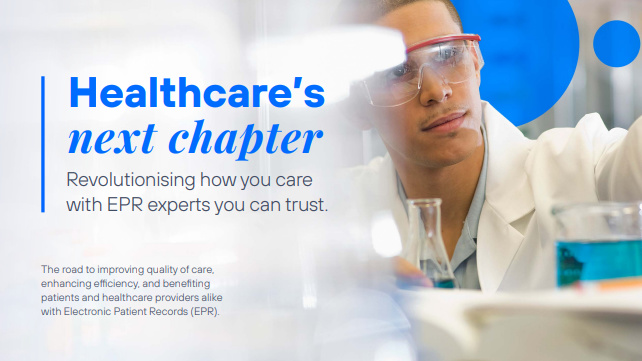 Healthcare’s next chapter
Healthcare’s next chapterwhitepaper Revolutionizing how you care with EPR experts you can trust
-
 Strategic app modernization drives digital transformation
Strategic app modernization drives digital transformationWhitepaper Modernize your applications to address business needs both now and in the future
-
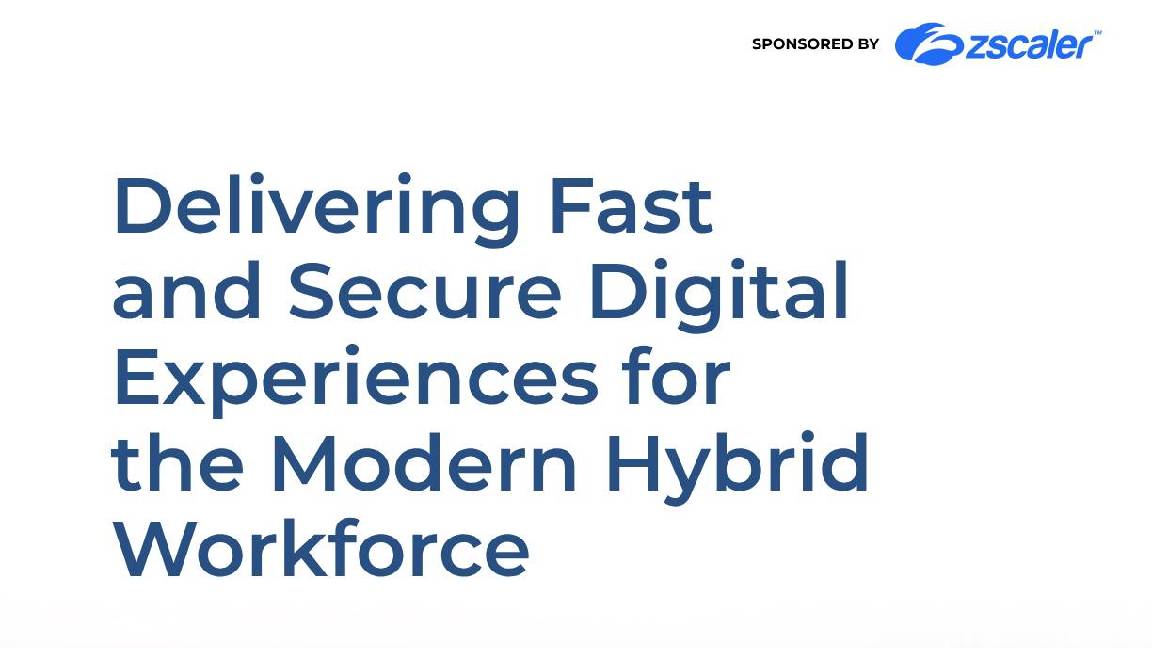 Delivering fast and secure digital experiences for the modern hybrid workforce
Delivering fast and secure digital experiences for the modern hybrid workforceWhitepaper A new approach to digital experience monitoring that can monitor the health of all systems
-
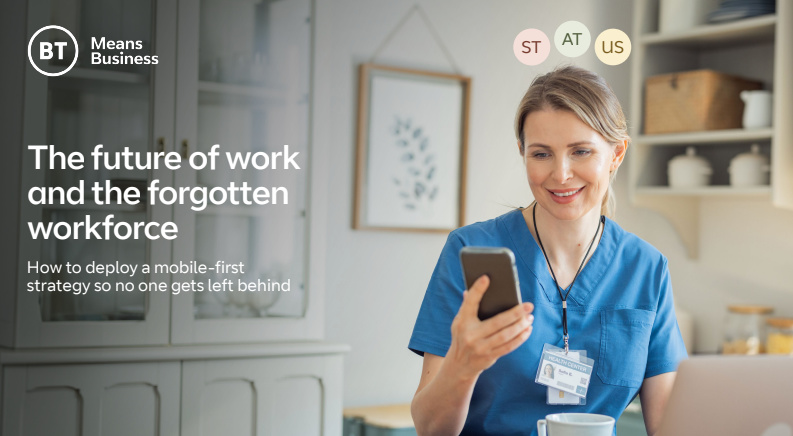 The future of work and the forgotten workforce
The future of work and the forgotten workforcewhitepaper How to deploy a mobile-first strategy so no one gets left behind
-
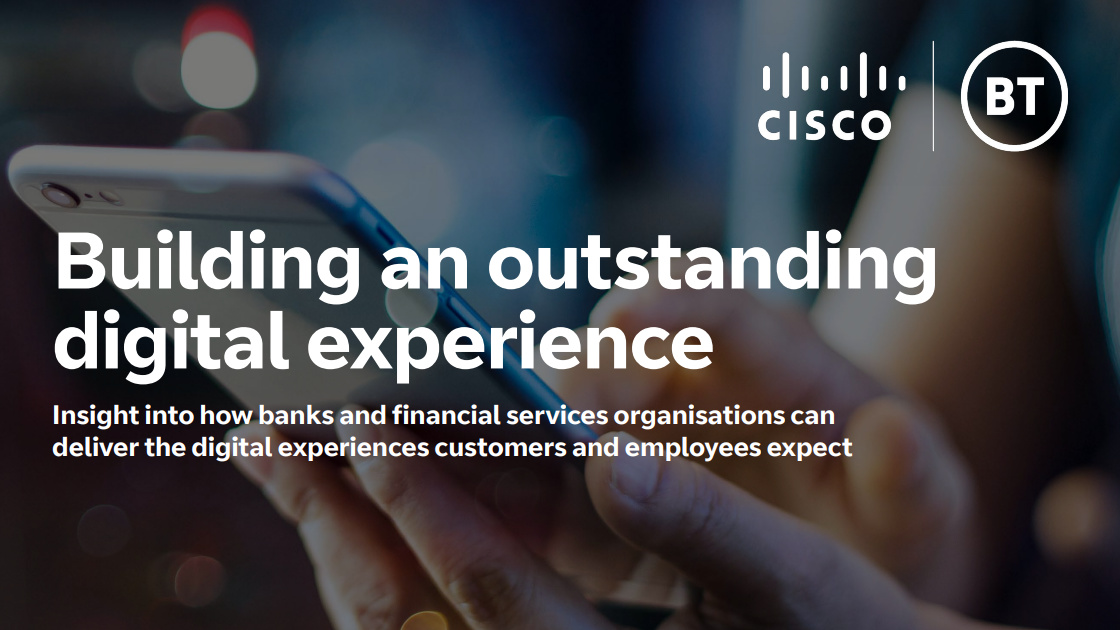 Building an outstanding digital experience
Building an outstanding digital experiencewhitepaper Insight into how banks and financial services organizations can deliver the digital experiences customers and employees expect
-
 The digital-first journey towards the future enterprise in Europe
The digital-first journey towards the future enterprise in Europewhitepaper The shift to a digital-first Europe


